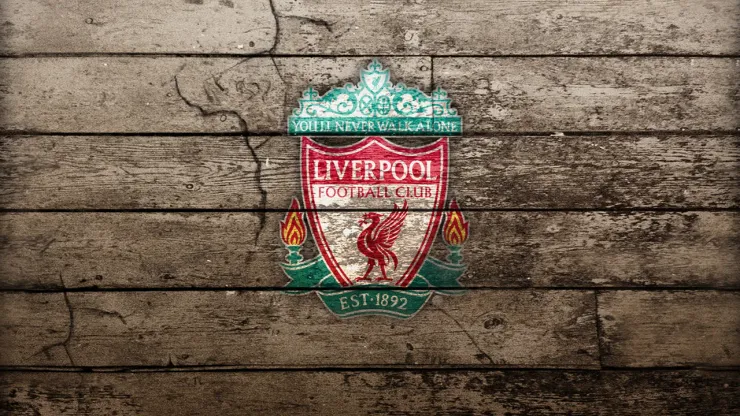In 2006, John W. Henry—the executive fronting the New England Sports Venture’s (NESV’s) attempted takeover of Liverpool—was clocked at a £540m net worth. This was years before the inevitable subtractions of the global recession.
In 2009, Mansour bin Zayed Al Nahyan, affectionately known as Sheikh Mansour and the owner of Manchester City, was estimated at about a £2.1bn net worth.
The gap is clear.
It’s safe to say that the NESV’s prospective takeover of Liverpool carries with it a culture wholly opposite from the win-at-all-costs mentality that Roman Abramovich or the Royal Abu Dhabi group flew in with; similar to Hicks and Gillett, these are businessmen: they aren’t handing over £300m to restore a cherished history, they’re handing it over to be handed more back. Investment seeks return, just like Sol Campbell seeks his kidney pies.
But the NESV are far from at fault for pursuing a profit.
It’d be naïve to reject the notion that ‘making bank’ is as mechanical a process to the modern businessman as the kill function is to the Terminator. And this ‘profiteering’ is only exacerbated by the influence of American professional-athletic culture: In America, sports like hockey, basketball, and American football all feature stringent financial regulations, such as a salary cap (an upper bound that limits the total amount owners can pay their players, across a team), which provides a buffer to the financial clout of personal fortunes—á la Sheik Mansour. In a strangely sappy way, the democratic ideals of the American constitution have permeated into the nation’s sporting culture and, although the NESV’s main interest is baseball (a sport featuring fewer financial regulations than other American pastimes), there’s a veritable connection between the idea of an investment quota and owners like Hicks and Gillett.
Whether the NESV would feature a similar reluctance to provide financial fuel—only time will tell. I’m a believer that the NESV would make a positive change, especially considering the low standard set by their predecessors. (Come to think of it, Liverpool’s position in the table almost guarantees that they couldn’t possibly lead the team any farther from success.) Businessmen they may be, but they’re smart businessmen: The Red Sox’s success didn’t come about overnight, and it didn’t come about by chance. Perhaps a direct comparison is in order: The NESV never approved of a Robbie Keane purchase that resulted in an £8m net loss in under a year, so they have an instant leg up on the dismal dealings of Hicks, Gillett and, to be fair in criticism, Rafa Benitez.
But I’ll posit the question: Even if the NESV provides relatively low investment (compared to the likes of Abramovich and Mansour), does financial prudency need to stifle a team’s success?
And I’ll provide an answer: No. From 2004-09, Chelsea, Manchester United, and the Hicks-Gillett Liverpool all saw net transfer losses ranging from £27-186m. Manchester City spent £115m in the summer alone and has received investment from Mansour upwards of £1bn. Tottenham come a close second in spending and an arguable equal to the other clubs in this list.
And I’ll back my answer with a (somewhat cliché) case study: What’s the one big-name club missing from the above list? Arsenal. During the same 2004-2009 period, Arsenal saw a net transfer profit of £27m. This is a club run by businessmen: They aren’t pirates scouring the high seas for clubs to abuse, and they’re far kinder to Arsenal than Didier Drogba; they’re movers and shakers with a vested interest in revenue and earnings—all of which starts with success. ‘Profiteering’ can’t be done without winning games and drawing in support from the fans, and the NESV know that.
Liverpool fans, ready yourselves and your expectations: This takeover won’t feature Roy Hodgson bathing in £20 notes (thank god—Hodgson bathing would be an unbearable sight). But it will mark a resurgence of reason.
Perhaps these Americans can restore their nation’s credibility within the world of football administration. But let’s make that a side note. For now, how about they restore both Anfield and the club’s winning mentality. It’s time to pick up the pieces and rebuild this shattered club.
200+ Channels With Sports & News
- Starting price: $33/mo. for fubo Latino Package
- Watch Premier League, Women’s World Cup, Euro 2024 & Gold Cup
The New Home of MLS
- Price: $14.99/mo. for MLS Season Pass
- Watch every MLS game including playoffs & Leagues Cup
Many Sports & ESPN Originals
- Price: $10.99/mo. (or get ESPN+, Hulu & Disney+ for $14.99/mo.)
- Features Bundesliga, LaLiga, Championship, & FA Cup
2,000+ soccer games per year
- Price: $5.99/mo
- Features Champions League, Serie A, Europa League & Brasileirāo
175 Premier League Games & PL TV
- Starting price: $5.99/mo. for Peacock Premium
- Watch 175 exclusive EPL games per season






